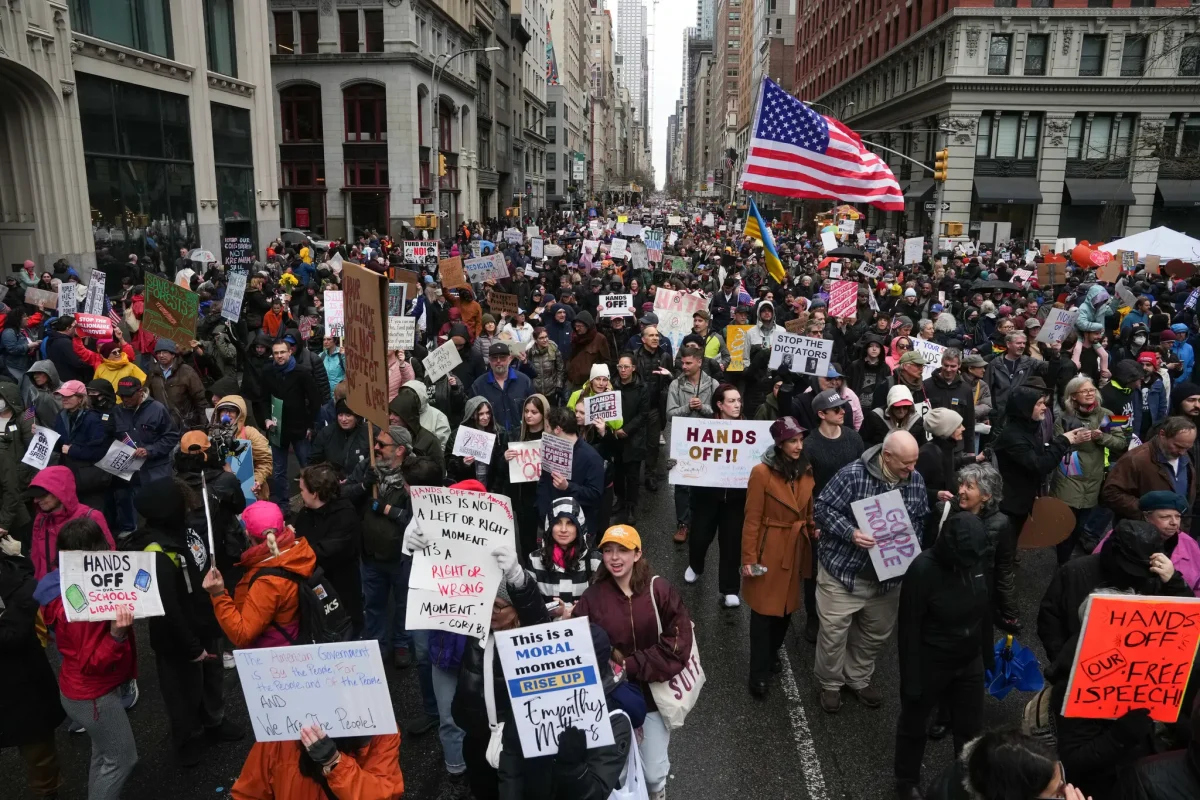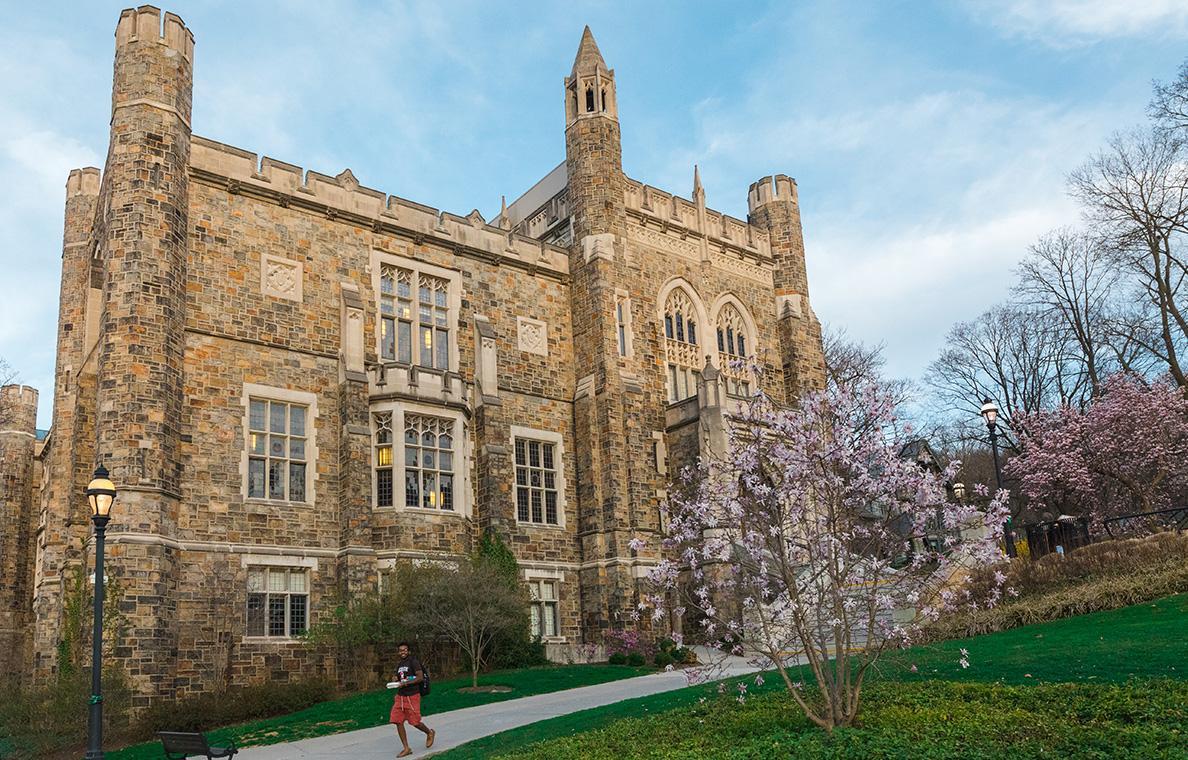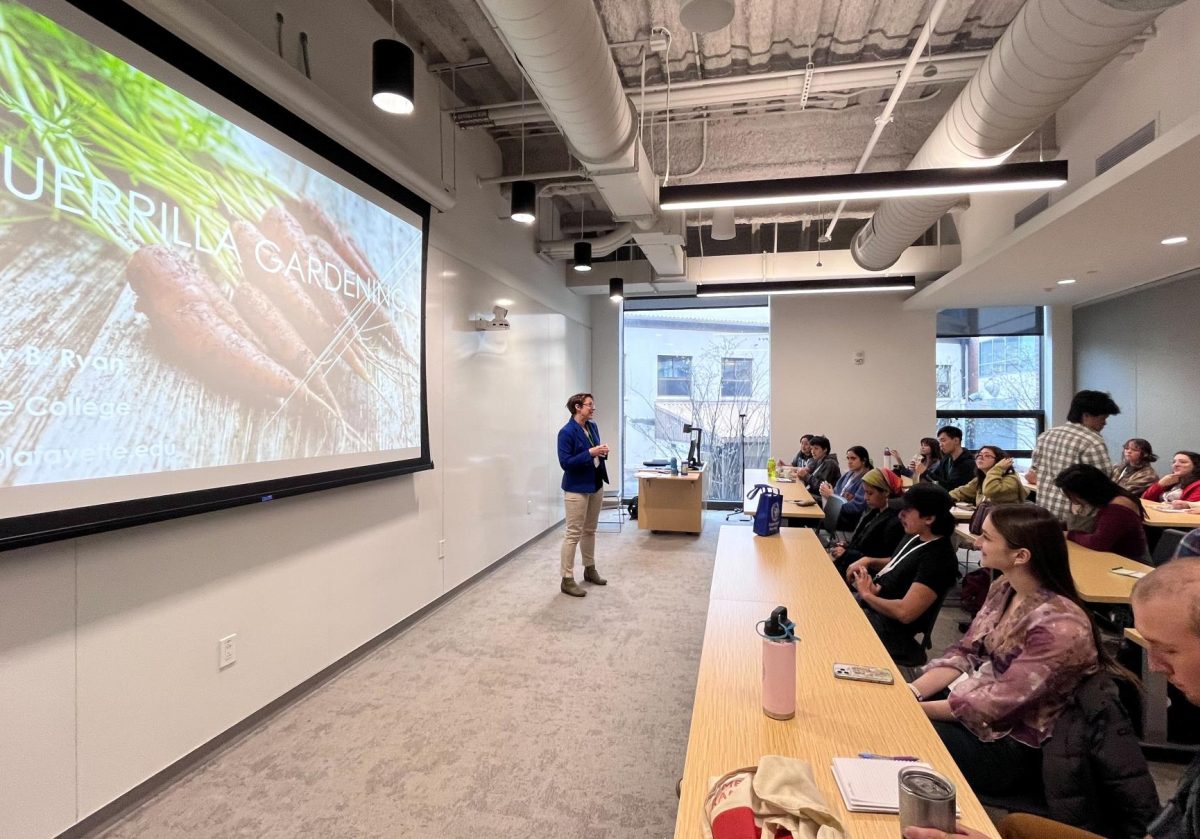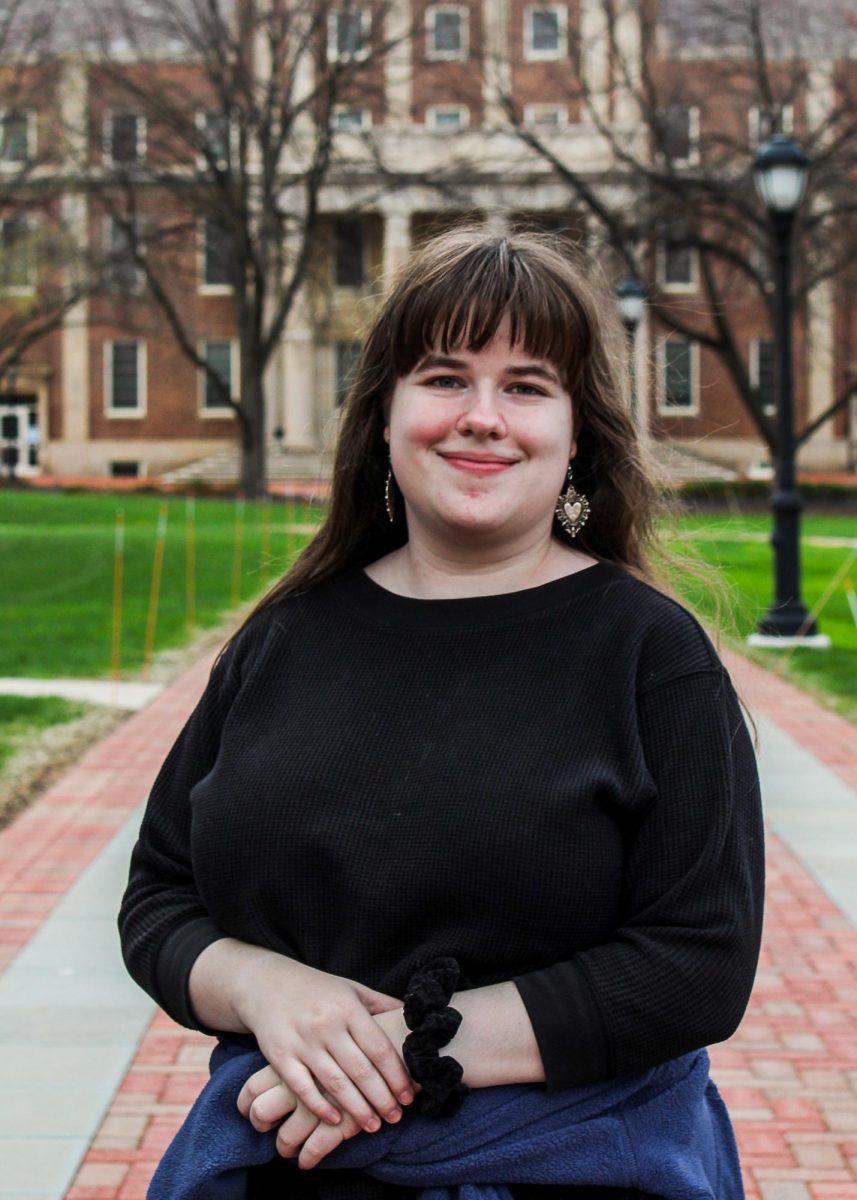A Lafayette College spokesman did not rule out complying with the Trump administration if it threatened the school’s students or funding during a time when the federal government has upended dozens of universities by revoking grants and deporting international students.
Asked over email what Lafayette would do if the administration demanded the names of student activists absent a warrant — as it did to five schools that, like Lafayette, received a warning from the government stemming from antisemitism investigations — the spokesman, Scott Morse, wrote that “we appreciate your interest in hypothetical situations and scenarios.”
“It would be premature to comment on such scenarios at this time, because the individual facts and circumstances are often complex and necessitate individual and nuanced responses,” he continued, noting that any decision would be “guided by both our mission and values and the best interests” of the college community. Morse gave an identical response when asked what would happen if an international student visa or green card were revoked, as has happened to hundreds of students around the country. An undisclosed number of Lehigh University students had their visas revoked this week.
Asked what the college would do if the Trump administration rescinded Lafayette’s funding unless it enacted policy changes — as it has done to Columbia, Cornell University, Northwestern University and the University of Pennsylvania — Morse again pointed to the college’s mission and values statement. Lafayette has quietly disobeyed a Department of Education directive to end race-based initiatives at the risk of losing federal funding.
Lafayette received roughly $12.5 million in federal funding in 2024, according to a February presentation on college finances. The college’s total operating revenue in 2024 was over $200 million. Lafayette has 189 international students, according to the college’s most recent Common Data Set.
Vice President for Finance and Administration Audra Kahr deferred to Morse for comment.
Lafayette’s noncommittal response contrasts with its approach to the last Trump administration.
When then-president-elect Donald Trump threatened the Deferred Action for Childhood Arrivals program — which protects undocumented immigrants who arrived in the United States as children — in 2016, then-college President Alison Byerly signed a statement in support of the program and pledged to “do everything we can within the limits of the law” to protect undocumented students. Under Byerly, the college signed multiple amicus briefs supporting lawsuits against the Trump administration’s immigration policies.
But during the current Trump administration, several faculty allege, the college administration advised them to cooperate with immigration authorities before quickly backtracking.
At the April 1 faculty meeting, two professors and a visiting instructor read a statement demanding the college support students and faculty under threat by the government and “not engage in anticipatory obedience.”
“We cannot bracket our freedoms and we cannot hope it won’t happen here, and we cannot be complacent nor ignore our ethical imperative to act,” the statement reads. “Failing to do so is a dangerous precedent for the safety of us all.”
General Counsel Tim Cedrone deferred to Morse for comment. College President Nicole Hurd did not respond to a request for comment.
In a April 4 campus-wide email addressing student travel concerns and “immigration-related issues,” Vice President for Inclusion Ernest Jeffries and Vice President for Student Life Sarah Moschenross acknowledged that “recent events have caused concern and unease” and that the college was “unable to offer specific advice on whether or not to travel abroad.”
“Given the evolving situation, however, we ask that you make decisions prioritizing your own judgments around safety,” the message reads. Jeffries and Moschenross also provided a short list of resources for traveling students, including a way to access legal counsel.
Editor’s note: This article was updated on Thursday to reflect recent developments in the Lehigh Valley.























































































































